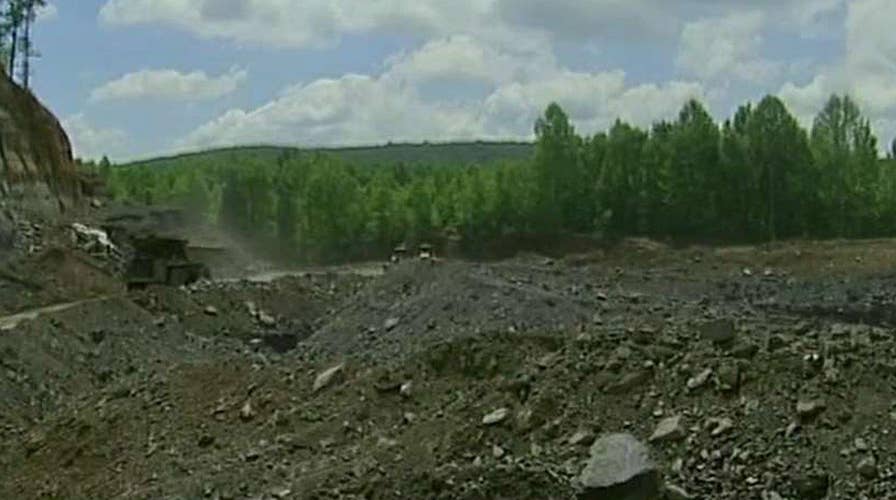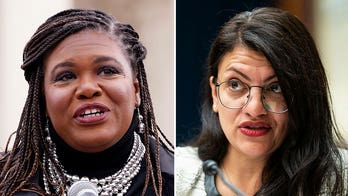Trump's coal push faces resistance on West Coast
Dan Springer reports on Democrats' efforts to block coal ports
President-elect Donald Trump rode a wave of support from the industrial Midwest and a network of coal-producing states to win the White House, after he promised to put coal miners back to work in an industry that has shed 200,000 jobs since 1980.
But in order to fulfill that pledge, Trump will need to penetrate a blue wall.
West Coast states, dominated by Democrats in elected positions as well as regulatory agencies, have rejected every port project aimed at getting millions of tons of U.S. coal to markets in Asia.
The latest blockage took place Jan. 3 when outgoing Washington State Lands Commissioner Peter Goldmark denied a sublease to Millennium Bulk Terminal in Longview, Wash.
“It’s disappointing,” said Millennium CEO Bill Chapman. “You’d like to have an elected official take into account the needs of the whole state.”
JUDGE REBUKES EPA, ORDERS EVALUATION ON COAL JOBS LOST TO REGULATIONS
Chapman says the terminal would create 1,000 construction jobs and 300 permanent positions.
Federal agencies, along with regulators in Oregon and Washington, have turned down four port projects over the last five years. Two other port proposals were scrapped by developers over protests by environmental groups. The projects were slated to stretch from Bellingham, Wash., to Coos Bay, Ore. Several were planned for points along the Columbia River.
The ports were supposed to revive a coal industry that has seen domestic use decline for decades.
Cheap natural gas, environmental regulations and a steady stream of U.S. coal plant closings have made exporting coal essential to any comeback. Foreign sales peaked in 2012 as China’s economy has slowed, but a lack of West Coast coal ports has contributed to the problem.
Environmentalists say they represent a thin green line in the Pacific Northwest standing up to the coal industry.
“If we allow these projects to go forward, not only will we have a local impact, they would release globally significant quantities in the air,” said Dan Serres of Columbia Riverkeeper. “So it threatens the health of the fishery here in the Columbia River, but it threatens the health of the climate in the long haul.”
With a Trump administration, though, some see a showdown brewing. The president-elect’s pick to run the Interior Department is a staunch supporter of the coal industry who hails from a coal-producing state. Republican Montana Rep. Ryan Zinke has criticized the port rejections by state and federal regulators.
Others see room for a legal challenge invoking the Commerce Clause.
“These ports are for the Western United States, and the landlocked states who want to be able to export products overseas need access to those ports,” said Rob McKenna, a former Republican attorney general in Washington state. “I think it raises real constitutional issues when states systematically try to deny them access to those ports.”
Congress also could pass a law treating ports much in the way railroads are governed. Under current law, states are not allowed to block trains just because they don’t like the product they’re hauling.





